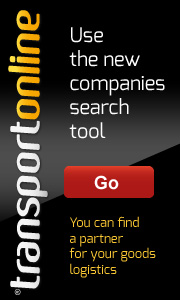Search Company:

IRU appreciates the plan’s clean mobility pillar.
IRU welcomes the European Commission’s Industrial Action Plan for the European Automotive Sector, particularly the focus on incentives and better infrastructure access to support commercial road transport operators’ uptake of zero-emission vehicles. However, IRU remains deeply concerned about the lack of technology options for road transport – only battery-electric technology is promoted as a clean solution – and the potential purchasing mandates for corporate fleets.
The European Action Plan sets out the roadmap to support the automotive industry in its transition to clean, connected and increasingly automated vehicles.
IRU appreciates the plan’s clean mobility pillar, recognising the need to ensure enabling conditions for the rollout of electric vehicles, along with several supporting measures. At the same time, the fact that the plan prescribes battery-electric vehicles as the EU’s only solution to green road transport is concerning.
IRU EU Director Raluca Marian said, “Carbon-neutral fuels, renewable fuels, biofuels, and even hydrogen are missing from the EU’s plan. Despite Member States being legally obliged to build infrastructure for hydrogen refuelling, the plan does not seem to take this technology seriously.”
“Our takeaway is reinforced by the recently published Clean Industrial Deal, which mentions hydrogen only for aviation and maritime. To sum up, the EU is putting all its bets on one option, battery-electric technology,” she added.
Aligning CO₂ standards with reality
Although the plan acknowledges the lack of enabling conditions, including grid deficiencies, the Commission has missed the opportunity to plan an early review of CO₂ standards for heavy-duty vehicles. Such a revision is necessary to align the level of ambition for reducing CO₂ emissions with the reality of the enabling conditions and to include clean fuel technologies.
Infrastructure: Progress made but gaps remain
IRU welcomes the Commission’s focus on charging infrastructure but warns against relying solely on the implementation of the Alternative Fuels Infrastructure Regulation (AFIR). The plan recognises the need for depot and hub charging but does not provide any concrete solution.
At the EU level, 70% of freight transport is regional and local. Therefore, while AFIR is necessary, it will not provide the solutions required for most heavy-duty freight transport.
On a positive note, IRU appreciates the recognition of taxis and other types of city fleets, as well as the reference to buses and coaches in the Decarbonise Corporate Fleets Communication.
“Transport operators need a comprehensive infrastructure strategy that expands recharging and refuelling infrastructure beyond the TEN-T network to support real-world transport operations,” said Raluca Marian. Read more
Source: IRU




